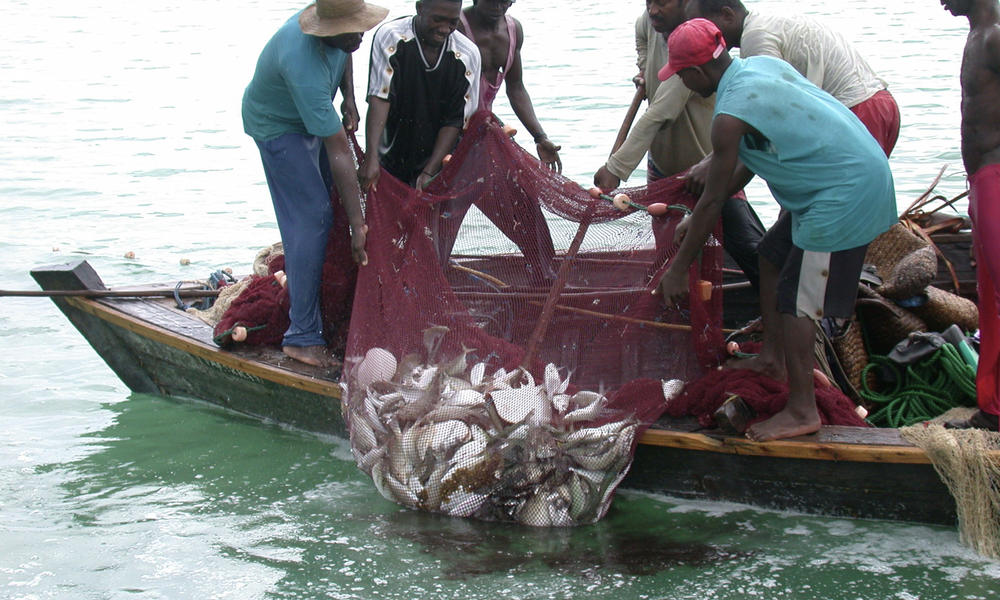The Gulf of Guinea (GoG) Commission on Monday decried the loss of more than $2 billion yearly to illegal and unregulated fishing in the region.
The Gulf of Guinea consists of Nigeria, Benin Republic, Ghana, Togo, Cameroon, Equatorial Guinea, Gabon, Sao Tome and Principe, Angola, and Congo.
At a seminar organised by the Nigerian Maritime Administration and Safety Agency (NIMASA) on “Blue Economy in the interest of food security in the Gulf of Guinea region”, the GoG Commission and other participants agreed that the seas and oceans in West Africa are facing serious pressure from within and outside the region.
They therefore agreed to jointly deal with the issues, by prudently managing the maritime domain and human activities that are negatively affecting the Gulf of Guinea.
Executive Secretary of the GoG Commission, Florentina Adenike Ukonga, said: “There is strong evidence that major ocean assets have been in steady decline for many years, many of the living marine resources are in serious decline as a result of human activities at sea, and there have not been any serious sustainable practices to deal with this serious threat in this part of the world.
“The blue economy is already faltering and not delivering anything like its full potential, at a time when the population is on the increase and the need for food and resources from the ocean is also increasing.
“It has been projected that the population will continue to increase, which requires us to do more especially the peoples of the coastal states in Africa that rely so much on the nutrients, which they get from the living marine resources.
“While other countries are reaping the benefits and returns from the blue economy, West Africa for example, is estimated to be losing about $2 billion yearly from illegal fishing. Its coastal sector remains largely underdeveloped and poorly governed, which has enabled other forces from outside the continent to benefit more from it, than its citizens; a very disturbing situation. Thank God we are doing something about it now.”
She said fishing is an occupation practiced by almost all riverine populations, adding that this can be developed to the level that no importation of frozen marine living resources from outside the GOG region will be necessary for consumption, if the living marine resources are properly harnessed, developed, grown and controlled.
Also speaking at the event, the Director-General, Nigerian Maritime Administration and Safety Agency (NIMASA), Dr. Dakuku Peterside, noted that over the years, Nigeria had played lead role in regional maritime protection.
Peterside, who was represented by the NIMASA Executive Director, Finance and Administration, Bashir Jamo, stated that as the commission’s first segment of the seminar on blue economy in Nigeria, the conference would expose what constitutes the concept, its potentials as a goldmine, constraints and the way forward.
He urged African nations to look inwards, research and tap the enormous resources in its coastlines, adding that though many countries in the continent had recently started exploiting hydrocarbon resources, the fortunes therein were already being hampered by competition and the recent developments in technology.
